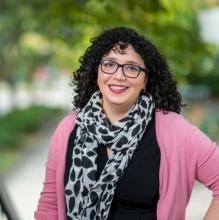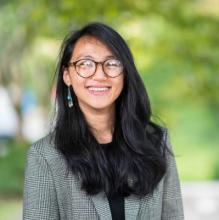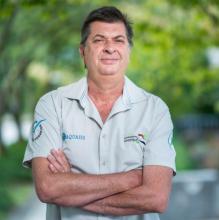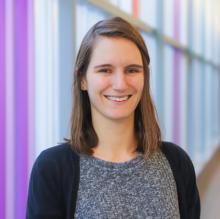This collaborative project with the Williams Lake Community Forest managers utilizes an interdisciplinary approach to explore the key cultural and ecological components that dominated the historic wildfire regime in order to help develop holistic and appropriate management strategies for minimizing the threat of catastrophic wildfire in the future.
Research Description
Catastrophic wildfires are increasing in frequency with devastating consequences for human and ecological communities worldwide. To deal with this threat, the dominant management paradigm relies on general ecological assumptions about historic fire regimes at the expense of a site-specific understanding. Furthermore, this paradigm largely ignores indigenous social-cultural values associated with landscape fire, despite evidence of a significant contribution by indigenous peoples to historic fire regimes. To overcome these shortfalls, this research aims to develop empirically-informed, community-identified strategies to minimize the threat of catastrophic wildfire in the Williams Lake Community Forest, located in the interior BC’s fire-prone region. Working collaboratively with the Williams Lake Community Forest managers, including the Williams Lake Indian Band, this research utilizes both qualitative inquiry methods (such as focus groups and participatory mapping) and quantitative tree-ring studies to provide a more holistic understanding of the historic fire regime in this location.
What does being a Public Scholar mean to you?
As a Public Scholar at UBC, I feel that the novel approach to community-based research is given a platform to thrive. Through the creation of a network of other scholars engaged with the community, there is a wealth of intellectual and experiential capital from which I can draw and contribute to. In addition, the PSI at UBC acknowledges the importance of significant community collaboration and the added challenges and benefits that accompany that collaborative process.
In what ways do you think the PhD experience can be re-imagined with the Public Scholars Initiative?
The Public Scholars Initiative provides a forum that values innovative research approaches and supports research that does not adhere to the traditional interpretation of undertaking a PhD. The experience of undertaking a PhD with support from the PSI allows for scholars to grow both as academics and as active global citizens.
How do you envision connecting your PhD work with broader career possibilities?
Because this PhD research draws on my strengths and allows me the opportunity to disseminate the research both within and beyond the academic sphere, it gives me the confidence to pursue a career that will also meaningfully help communities dealing with the threat of wildfire. I do not foresee the end of my PhD research as the end of my academic career, but rather a stepping stone towards building relationships and connections to the people I want to work with in the long-term.
How does your research engage with the larger community and social partners?
This research works directly with the Williams Lake Community Forest managers to help protect the forest from future catastrophic wildfire using an empirically-informed, multi-value perspective. Specifically, this research will enable knowledge-sharing with the Williams Lake Indian Band Elder Council through which we can better understand their historic and modern relationship to fire at the landscape scale. Through this engagement, we seek to create an avenue for often marginalized perspectives to be acknowledged and respected within the context of natural resource management.
Why did you decide to pursue a graduate degree?
Pursuing a PhD provides me the opportunity to combine my passion for forest conservation, my interest in meaningful applied research, a keen awareness of alternative worldviews, and my experience in collaborative work to address an urgent environmental and social issue.
Why did you choose to come to British Columbia and study at UBC?
The Faculty of Forestry at UBC houses a multi-disciplinary faculty that provides the breadth and depth of support necessary to undertake an interdisciplinary project. Furthermore, the emphasis at UBC on building respectful collaborations with Indigenous communities has truly offered a unique forum in which I have developed the skills required to successfully realize the goals of this project.
As a Public Scholar at UBC, I feel that the novel approach to community-based research is given a platform to thrive. Through the creation of a network of other scholars engaged with the community, there is a wealth of intellectual and experiential capital from which I can draw and contribute to.




